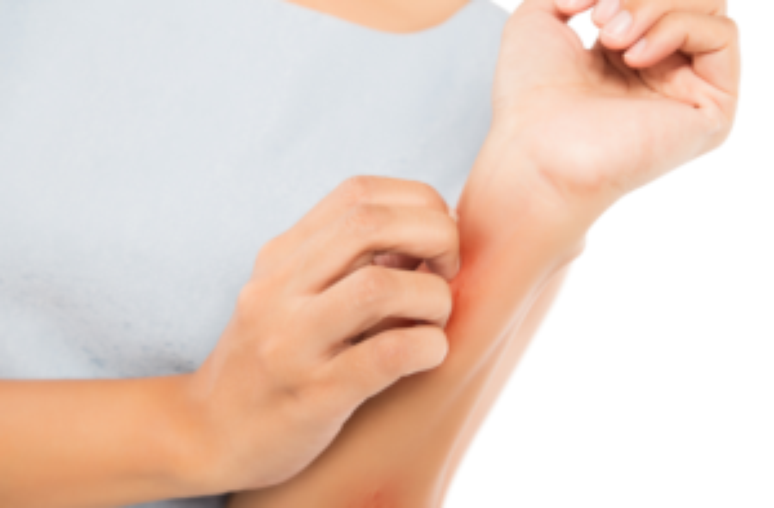Let’s find out what are the reasons and how to make them soften?
Have you ever taken that long shower and realized your skin started itching early on? Itching after a bath can be more common than you might think and can be caused by a number of factors. In addition to stinging, itching can still generate some dryness, redness and other signs that the bath has not brought the expected relaxing effect. But the reason for this phenomenon is a mystery to many! In this article you have access to the knowledge of
doctor José Jabur da Cunha, dermatologist and head of the dermatological surgery sector at Santa Casa de São Paulo
on the subject in an interview for the PodCast of Portal SO.U + Bem Estar.
What are the most common causes of itching after a shower?
When a person takes a shower, whether in the pool or in the shower, natural substances such as fat are removed from the skin.
“When you get in the pool you remove that layer of grease and when you take a hot soapy bath you remove it again”
, says Dr. José Jabur da Cunha. This problem can be more common than you might think, especially in cases of naturally dry skin. As the expert explained, water alone already removes an important protective layer, fat, from the skin. When this is associated with the use of soaps, the problem can be accentuated, and can also lead to greater dryness of the person’s skin. Meanwhile, it’s not just soap and water that’s causing this discomfort. The existence of diseases and conditions like psoriasis, atopy, vibrating urticaria, and hypothyroidism, for example, can trigger increased skin dryness. In this way, post-shower itching is not a rare event and can happen to anyone.
html[data-range=”xlarge”] figure figure img.img-22a277a9bd915c122d80d7dda6bbabf2wam50wil { width: 774px; height: 508px; }HTML[data-range=”large”] figure figure img.img-22a277a9bd915c122d80d7dda6bbabf2wam50wil { width: 548px; height: 360px; }HTML[data-range=”small”] figure figure img.img-22a277a9bd915c122d80d7dda6bbabf2wam50wil, html[data-range=”medium”] figure image img.img-22a277a9bd915c122d80d7dda6bbabf2wam50wil { width: 564px; height: 370px; }
How does water temperature affect itching after a shower?
The temperature of the water can influence the impact it has on the skin and therefore the itching after a shower. In this context, severe skin irritations can be treated with warm water. This happens because hot water promotes greater dryness and results in the stripping of natural oils from the skin. This removal means that specific items that the region needs have been removed. Despite this, it is not said that cold showers should always be taken, even in winter, but it is interesting to find a milder temperature, being closer to the cold. Therefore, lukewarm baths offer less damage to skin health.
How important are natural skin oils in preventing post-shower itchiness?
As you’ve learned, post-bath itch is caused by the stripping away of fats — oils — essential to skin hydration. As with the whole body, there is a reason for these substances to remain in the skin and, in this case, it is the hydration of the body’s largest organ: the skin. The oils are responsible for forming a powerful layer of protection in the region. It helps with hydration, as you’ve learned, and helps prevent hydration loss caused by exposure to water and other substances. The protective layer, in addition to moisturizing, is still responsible for preventing water loss. Therefore, when this coating is removed, the skin is exposed and susceptible to problems such as irritation.
How to prevent itching after bathing?
One of the first steps to reduce and even eliminate itching after a shower is to opt for a shower with cold water instead of a hot place whenever possible. But do you know the reasons for this controversial exchange? The use of cold water promotes a noticeable decrease in puffiness and swelling of the skin. It is also responsible for the contraction of blood vessels. This reaction can cause a reduction in post-shower itching. However, the use of certain products can cause inflammation. For this reason it is interesting to try to apply delicate cleansing products with a powerful moisturizing action. It is also recommended to avoid using soaps with excess fragrances. Also, pay attention to the label of all products that come into contact with your skin, such as shampoo, soap, moisturizers, oils, among others. None of these items should contain ingredients that could be harsh on your skin. The use of objects that can be more aggressive for the skin, such as bushings for example, must be indicated by a healthcare professional for specific cases. The protection of the natural skin layer must be protected and not torn off when bathing. You still need to be aware of bath time. Time-consuming treatments may not be the best option for keeping your skin healthy and itchy.
How can using moisturizers help prevent itching?
Skin hydration is essential to prevent inflammation, cracking, itching after bathing and other inconveniences. This hydration varies from person to person, so some may need more hydration, others less.
“The interesting thing is that the body is a package. People who have a history of respiratory allergies — rhinitis, asthma, bronchitis, et cetera — tend to have drier skin and are more likely to have this type of problem.” ,
explains the expert. Therefore, it is interesting to use a moisturizer, especially after a bath. However, you should look for a product that suits your skin best. Therefore, using products that promote skin hydration is important as they help prevent the loss of natural moisture. However, this movement must be continuous, that is, it must be done constantly, creating a daily habit.
Is the skin affected by the weather?
Your whole body can be affected by climate changes, as they have a great influence, both on the respiratory tract and on the moisture level of the skin.
“In winter the skin tends to become drier because the atmosphere is drier, so the skin loses moisture to the environment”
contextualizes Dr. Jose Jabur da Cunha. With this, it is important to pay attention to hydration during this period and avoid hot baths, as this practice causes the skin’s natural protection to be lost even more. However, according to Dr. José Jabur da Cunha, in summer the skin can draw hydration from the environment itself, due to the relative humidity of the air.
When to Seek Medical Care for Itching After Bathing?
The necessary first step is to go in search of a dermatologist to understand what is motivating this condition. These are usually not serious cases, but there may be an indication for further investigation. For this reason, if the itching is intense, persistent and accompanied by excessive redness, skin rashes, wounds, scaling, it is necessary to consult a specialist to evaluate the condition. Subsequently, the doctor will indicate the best treatment for the condition. Through this article it was possible to understand more about the causes of post-shower itching, the importance of keeping the skin hydrated and the external elements that can influence it. Did you know that skin hydration is essential for skin health?
Source: Terra
Ben Stock is a lifestyle journalist and author at Gossipify. He writes about topics such as health, wellness, travel, food and home decor. He provides practical advice and inspiration to improve well-being, keeps readers up to date with latest lifestyle news and trends, known for his engaging writing style, in-depth analysis and unique perspectives.








